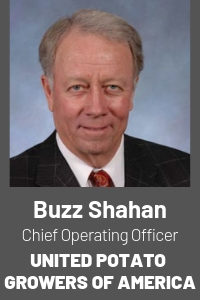Jul 14, 2021Column: Money is always the motive, but whose money?
Television is full of ads pushing financial-management companies. Notable about these companies is the way their salespeople — stockbrokers — are compensated.
This happens in one of two ways:
- “Money managers” are compensated according to client portfolio volume, regardless of stock performance.
- “Money managers” are compensated according to client portfolio volume and stock performance.
 So, what can be going through the mind of someone who invests with a volume-based company and not with a performance-based company? Shouldn’t an investor question the motive — incentive — of the person managing their investment? Shouldn’t an investor select a “money manager” with a motive that aligns with their own?
So, what can be going through the mind of someone who invests with a volume-based company and not with a performance-based company? Shouldn’t an investor question the motive — incentive — of the person managing their investment? Shouldn’t an investor select a “money manager” with a motive that aligns with their own?
Think of the term fiduciary. Broadly speaking, the term fiduciary speaks of financial duties that fall under two categories: Duty of loyalty, and duty of care.
Duty of loyalty means that the fiduciary’s interests align with the client’s; no conflict of interest allowed.
Duty of care means that the fiduciary cares for the investor’s wealth by maximizing its growth.
Imagine how different Wall Street would be if every stockbroker’s income depended upon the performance of their recommended trades and purchases. It has been speculated that, in a strictly fiduciary scenario, the 1929 stock-market collapse, the Great Depression that followed and the huge 2008 market tumble might never have happened, at least not to the degree they did.
History mistakenly gives too much credit in these cases to the over-speculating investor. It must be remembered that the investor had to have someone complete the transaction, the same person that benefited from the transaction regardless of outcome. This same thing happens every day in certain segments of the potato business.
Potato producers’ jobs are to produce potatoes, and they are good at it. While one would assume that producers have an interest in market dynamics, their actions often indicate otherwise. Because it is producer oversupply that too often gluts potato markets, is it only the producer’s fault when this happens? Without good advice from those that sell their crop, whose fault is it when market glut destroys a crop’s value? What if packing/sales organizations were compensated only when the producer makes a profit? How much more stable would potato markets be in this scenario? What could be going through the mind of a producer that allows anything other than that his sales organization’s interests align with his own?
One need not look far to discover regions that stabilize their markets through sales organizations acting as producers’ fiduciary. A tour of such areas reveals new storages, new tractors, new pivots, six-figure farm managers, state-of-the-art packing facilities and debt-free landowners. And here’s the key ingredient: While packing/sales staffs get most of the credit for these excellent economic outcomes, a quick look at the grower list that makes up those local cooperatives’ boards of directors reveals that everyone in the loop holds tightly to market data, holds fast to those business parameters that remunerate while avoiding those that do not.
Consistent prosperity in the potato-production business does not result from good luck, rather, from practical, data-based business management. Any region can do it, but it does require leadership.







